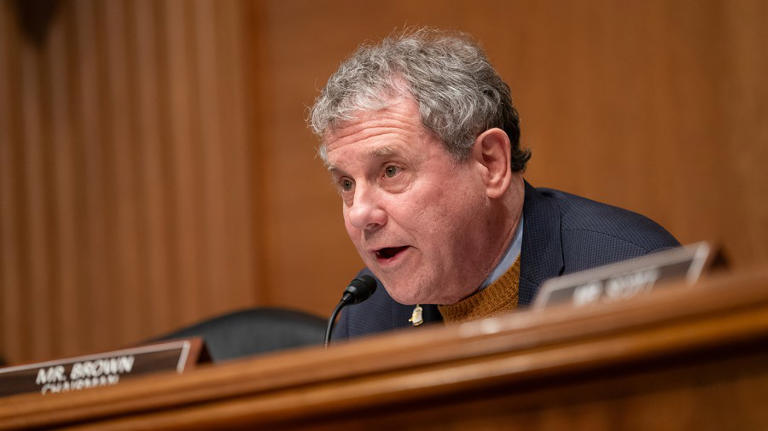Senator Sherrod Brown (D-Ohio) joined Sesame Street’s Cookie Monster in denouncing “shrinkflation” on social media. The beloved blue character expressed frustration with the practice of companies reducing the size of their products while keeping prices unchanged.
In a post on X (formerly known as Twitter), Cookie Monster lamented, “Me hate shrinkflation! Me cookies are getting smaller.” Senator Brown, who chairs the Senate Banking Committee, echoed Cookie Monster’s sentiments, criticizing companies for shrinking product sizes as a means to maintain profits and fund CEO bonuses.
“Me too, Cookie Monster,” Senator Brown replied on X. “Big corporations shrink the size of their products without shrinking their prices, all to pay for CEO bonuses. People in my state of Ohio are fed up — they should get all the cookie they pay for.”
Senator Bob Casey (D-Pa.) also responded to Cookie Monster’s post, expressing his commitment to addressing the issue.
Both Brown and Casey are facing challenging reelection campaigns in November, with Ohio and Pennsylvania being battleground states. Former President Trump carried Ohio in both 2016 and 2020, while winning Pennsylvania in 2016 before narrowly losing it to President Biden in 2020.
The White House has also criticized “shrinkflation,” with President Biden releasing a video denouncing the practice as a “rip-off” ahead of the Super Bowl last month.
President Biden has called out companies for engaging in tactics such as “shrinkflation,” where product sizes are reduced gradually in an attempt to offset rising costs without raising prices. In a video message, Biden criticized such practices, stating, “The American public is tired of being played for suckers. I’m calling on companies to put a stop to this.”
High inflation has led to frustration among Americans, with companies either increasing prices or resorting to tactics like shrinkflation. Inflation peaked at a 40-year high of 9.1 percent in June 2022 but has since eased, standing at 3.1 percent as of January, according to the Labor Department’s consumer price index (CPI).
While changes in product sizes might be less noticeable to consumers compared to outright price increases, both are factored into the CPI by the Bureau of Labor Statistics.
Despite the Federal Reserve’s efforts to curb inflation through multiple interest rate hikes, the economy has proven resilient, exceeding expectations in job creation and maintaining an unemployment rate below 4 percent.
As inflation declines and the U.S. appears to have avoided a widely anticipated recession, many view the economy’s current trajectory as a “soft landing.” However, President Biden and Democrats continue to face challenges in changing Americans’ largely negative perceptions of the economy.
